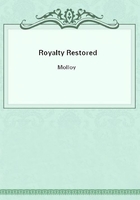
第80章 CHAPTER XIV.(1)
The kingdom in peril.--The chancellor falls under his majesty's displeasure.--The Duke of Buckingham's mimicry.--Lady Castlemaine's malice.--Lord Clarendon's fall.--The Duke of Ormond offends the royal favourite.--She covers him with abuse.--Plots against the Duke of York.--Schemes for a royal divorce.--Moll Davis and Nell Gwynn.--The king and the comedian.--Lady Castlemaine abandons herself to great disorders.--Young Jack Spencer.--The countess intrigues with an acrobat.--Talk of the town.--The mistress created a duchess.
At this time the kingdom stood in uttermost danger, being brought to that condition by his majesty's negligence towards its concerns. The peril was, moreover, heightened from the fact of the king being impatient to rid himself of those who had the nation's credit at heart, and sought to uphold its interests. To this end he was led in part by his own inclinations, and furthermore by his friends' solicitations. Foremost amongst those with whose services he was anxious to dispense, were the chancellor, my Lord Clarendon, and the lord lieutenant of Ireland, his grace the Duke of Ormond.
The king's displeasure against these men, who had served his father loyally, himself faithfully, and their country honestly, was instigated through hatred borne them by my Lady Castlemaine.
From the first both had bewailed the monarch's connection with her, and the evil influence she exercised over him. Accordingly, after the pattern of honest men, they had set their faces against her.
Not only, as has already been stated, would the chancellor refuse to let any document bearing her name pass the great seal, but he had often prevailed with the king to alter resolutions she had persuaded him to form. And moreover had his lordship sinned in her eyes by forbidding his wife to visit or hold intercourse with her. These were sufficient reasons to arouse the hatred and procure the revenge of this malicious woman, who was now virtually at the head of the kingdom. For awhile, however, Charles, mindful of the services the chancellor had rendered him, was unwilling to thrust him from his high place. But as time sped, and the machinations of a clique of courtiers in league with the countess were added to her influence, the chancellor's power wavered. And finally, when he was suspected of stepping between his majesty and his unlawful pleasures--concerning which more shall be said anon--he fell.
At the head and front of the body which plotted against Lord Clarendon, pandered to Lady Castlemaine, and, for its own purposes--politically and socially--sought to control the king, was his grace the Duke of Buckingham. This witty courtier and his friends, when assembled round the pleasant supper table spread in the countess's apartments, and honoured almost nightly by the presence of the king, delighted to vent the force of their humour upon the chancellor, and criticize his influence over the monarch until Charles smarted from their words. In the height of their mirth, if his majesty declared he would go a journey, walk in a certain direction, or perform some trivial action next day, those around him would lay a wager he would not fulfil his intentions; and when asked why they had arrived at such conclusions, they would reply, because the chancellor would not permit him. On this another would remark with mock gravity, he thought there were no grounds for such an imputation, though, indeed, he could not deny it was universally believed abroad his majesty was implicitly governed by Lord Clarendon. The king, being keenly sensitive to remarks doubting his authority, and most desirous of appearing his own master, would exclaim on such occasions that the chancellor "had served him long, and understood his business, in which he trusted him; but in any other matter than his business, he had no more credit with him than any other man." And presently the Duke of Buckingham--who possessed talents of mimicry to a surpassing degree--would arise, and, screwing his face into ridiculous contortions, and shaking his wig in a manner that burlesqued wisdom to perfection, deliver some ludicrous speech brimming with mirth and indecencies, assuming the grave air and stately manner of the chancellor the while. And finally, to make the caricature perfect, Tom Killigrew, hanging a pair of bellows before him by way of purse, and preceded by a friend carrying a fireshovel to represent a mace, would walk round the room with the slow determined tread peculiar to Lord Clarendon. At these performances the king, his mistress, and his courtiers would laugh loud and long in chorus, with which was mingled sounds of chinking glasses and flowing wine. ["Came my lord chancellor (the Earl of Clarendon) and his lady, his purse and mace borne before him, to visit me"--Evelyn's "Diary."]